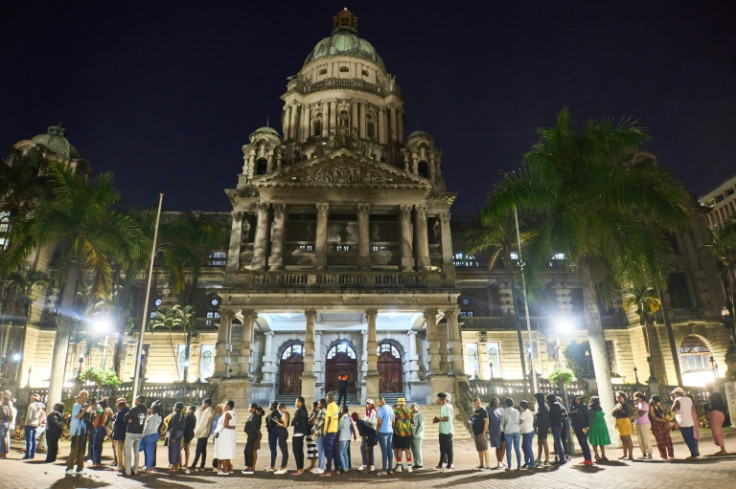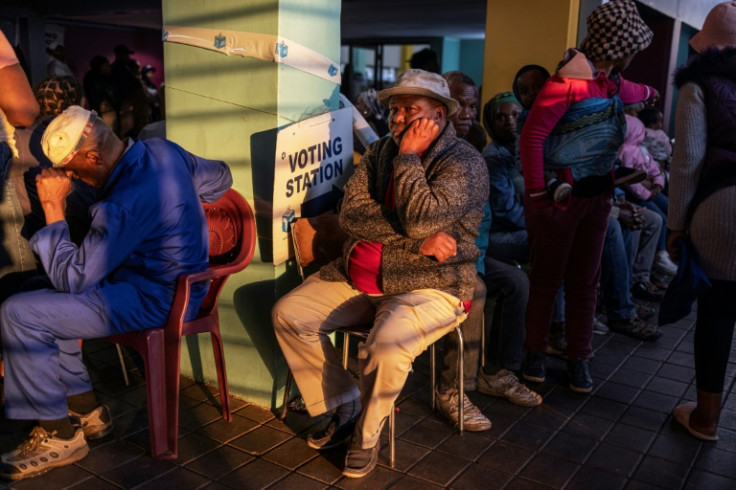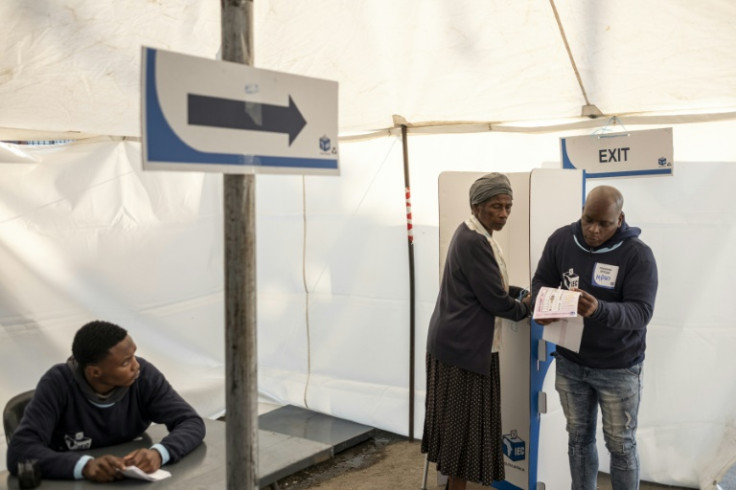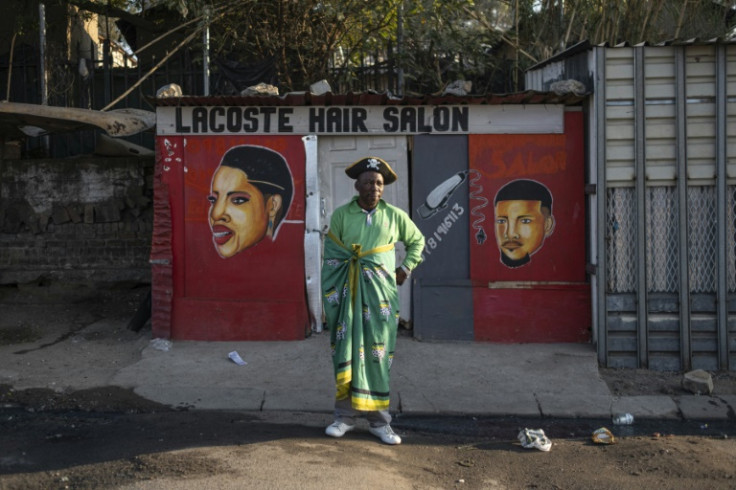South Africa Counts Votes With ANC Majority On The Line

Ballot counting was under way on Thursday after South Africans queued long into the night to vote in a watershed election, with partial results suggesting the ANC could lose its 30-year-old unchallenged majority.
Counting began in each voting station shortly after polls closed, in some cities long after the planned 9:00 pm (1900 GMT) Wednesday shutdown, with long queues of voters snaking into the night.
With just over 10 percent of votes tallied, the ANC was leading but with a score of 42 percent -- well down on the 57 percent it won in 2019 -- followed by the liberal Democratic Alliance (DA) at 26 percent, according to electoral authorities.
The leftist Economic Freedom Fighters (EFF) was in third place with eight percent of the vote, trailed by former president Jacob Zuma's uMkhonto weSizwe (MK) on seven percent.
The final results are not expected to be known before the weekend.
If President Cyril Ramaphosa's party is confirmed as dropping below 50 percent for the first time since it came to power in 1994 -- in South Africa's first democratic, post-apartheid election -- it would force him to seek coalition partners if he is to be re-elected to form a new government.
That would be a historic evolution in the country's democratic journey, which was underlined by newspaper headlines on Thursday.
"SA on the cusp of shift in politics," read the front page of daily BusinessDay.
"The people have spoken" headlined The Citizen, adding that the long queues were "reminiscent" of those that brought late liberation leader Nelson Mandela to power three decades ago.
The Independent Electoral Commission (IEC) said a last-minute rush in urban voting and high turnout were to blame for Wednesday's late finish and predicted the final turnout would be "well beyond" the 66 percent recorded in 2019.
But many voters complained at polling stations that the three-ballot system was too complex.
IEC general manager of electoral operations Granville Abrahams said that "under the circumstances", electoral authorities "could have done better".
"But I think that, given the challenges that we had, we were able to get up to our feet very quickly by making minor adjustments," he told local broadcaster Newzroom Afrika.
The ANC has dominated South African politics since Mandela won the first democratic election, beginning an unbroken run of five presidents from the party.
The party remains respected for its leading role in overthrowing white minority rule, and its progressive social welfare and black economic empowerment policies are credited by supporters with helping millions of black families out of poverty.
But over three decades of almost unchallenged rule, the party leadership has been implicated in a series of large-scale corruption scandals, while the continent's most industrialised economy has languished and crime and unemployment figures have hit record highs.
In Durban, accountant and first-time voter Sibahle Vilakazi, 25, found herself trapped in a huge queue winding away from her polling station but insisted she would not be daunted.
"We're honestly in need of change in this country and I think that is why the queues are so long," she said. "I'm not giving up, we need to see the change."
Against this background, Ramaphosa's opponents from both the left and the right came to the polls on Wednesday hoping either to replace the ANC with an opposition alliance or force the party to negotiate a coalition agreement.
Voting in his hometown of Soweto, the emblematic centre of the anti-apartheid struggle, Ramaphosa insisted "the people will once again invest confidence in the ANC to continue leading this country".
But DA leader John Steenhuisen predicted no single party would win an outright majority, creating an opening for his party and an alliance of smaller outfits.
"For the first time in 30 years, there's an opportunity for change in South Africa," he said after voting in his home city, Durban.
If the ANC outperforms the predictions and gets close to 50 percent it could shore up a majority by allying itself with some of the four dozen smaller and regional parties contesting the election.
If it drops to 40 percent it could patch up ties with one or both of the radical left parties led by former ANC figures: firebrand Julius Malema's EFF or Zuma's MK.
In a major upset, MK was leading with 41 percent of preferences in Zuma's home province of KwaZulu-Natal, a key electoral battleground, according to preliminary results.
The DA, which pledged to "rescue South Africa" through better governance, free market reforms and privatisations, brands such a notion the "Doomsday Coalition" and hopes to reach 50 percent with a broad alliance of smaller parties.



© Copyright AFP 2025. All rights reserved.



















